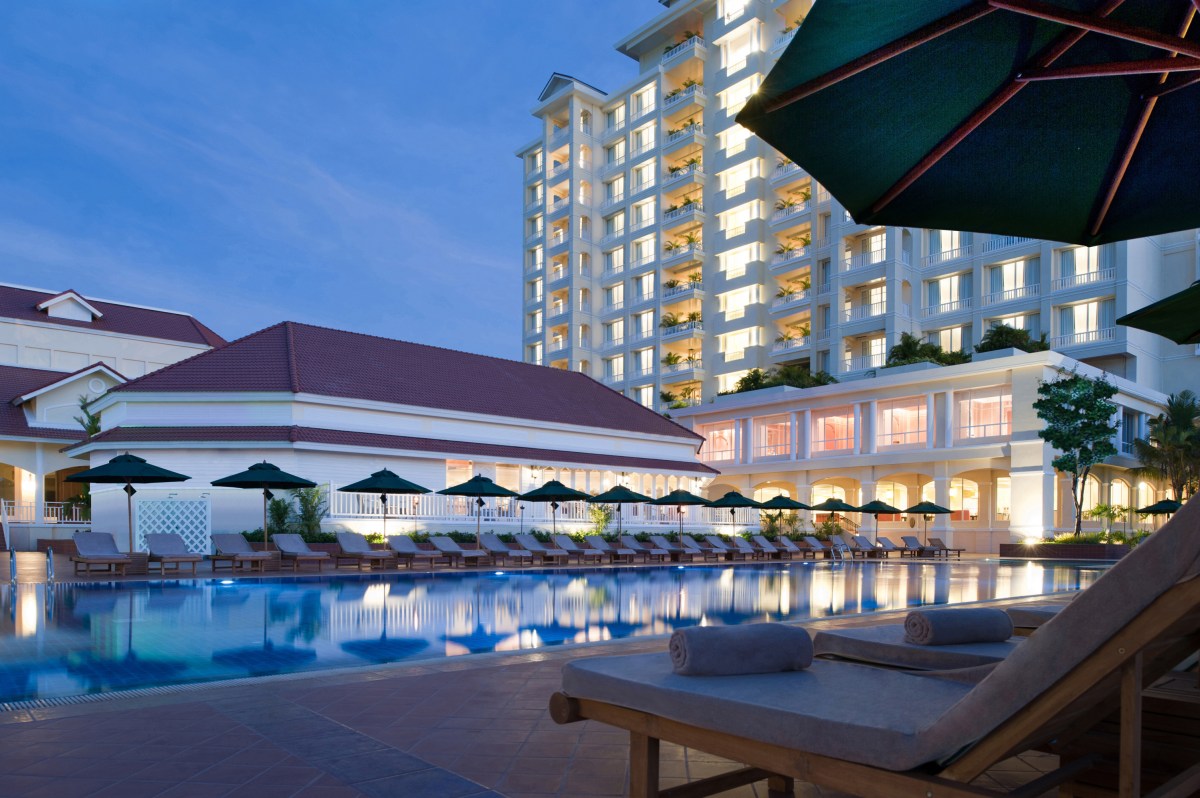
BY RODERICK EIME IN PHNOM PENH
Despite their dramatic exit from Indochina in 1954, the French have never lost their enthusiasm for the former colonies of Vietnam, Laos and Cambodia.
While many ornate public and private buildings from the century prior to their departure grow tired and faded or simply disappear, others are revived and venerated, reborn into a new and changing landscape.
Once dubbed ‘the Paris of the East’, Phnom Penh has certainly witnessed more than its fair share of upheaval. Since the dark decade of the ’70s, the Cambodian capital has gradually recovered itself from ghost town to the point where Lexus SUVs are mingling awkwardly with the torrent of noisy step-thru motorcycles. Cranes sit atop new sky-scraping developments as the flow of international investment dollars increases.
In the old quarter of the city, built among new development on vacant land is Phnom Penh’s newest luxury hotel, Sofitel Phnom Penh Phokeethra, set riverside amongst landscaped gardens and signals the return of the premium brand, absent since 2003.
With a soft-opening in mid-December 2010, the USD$50 million, 201-room hotel was immediately in the spotlight as headquarters and host hotel for the Asian Tourism Forum in January this year before its official opening on 29th March.
“This is a big step for Phnom Penh, and a big step for Cambodia,” said GM Didier Lamoot at the time, “This hotel should move Phnom Penh from maybe-visit to must-visit for upscale travellers who’ve wondered whether it’s possible to be catered to appropriately beyond Siem Reap.”
“The city’s ready,” he said. “People are coming, for leisure and for meetings, and increasingly for a mixture of both. That’s one of the most exciting new segments of the market, a traveller with intertwined intentions. This hotel was designed with exactly that traveller in mind.”
In an exclusive interview on site, HM spoke with resident manager, Frederik Deman.
HM: Accor is back as an investment partner in this hotel. Is this a new sign for the Sofitel brand?
FD: As you know, the Sofitel brand only manages properties, there are no Sofitel franchises and in the case of Sofitel Royal Angkor opened in 2000 in Siem Reap, it is management only of a 100 percent Cambodian owned property. In the case of Sofitel Phnom Penh Phokeethra, Accor is most definitely an investment partner along with Thai and Cambodian partners. Having said that, the Sofitel brand is near maturity in this region and further opportunities for Accor as a company lie in our 4-star brands such as Mercure, Novotel and Ibis for hotels and resorts.
HM: How did you find gaining staff?
FD: That task was relatively easy. Accor has operated a hotel school in Siem Reap for a decade so apart from locally trained staff – we like to call them ambassadors – we drew on experienced talent from Siem Reap. Our team is around 450 at the moment.
HM: What challenges do you face in the short term?
FD: Right now the supply is an issue. Without direct air routes into Phnom Penh it’s tough. We’re competing directly with the Raffles and Intercontinental but have already taken the #2 position on Tripadvisor, so we are happy with that progress.

